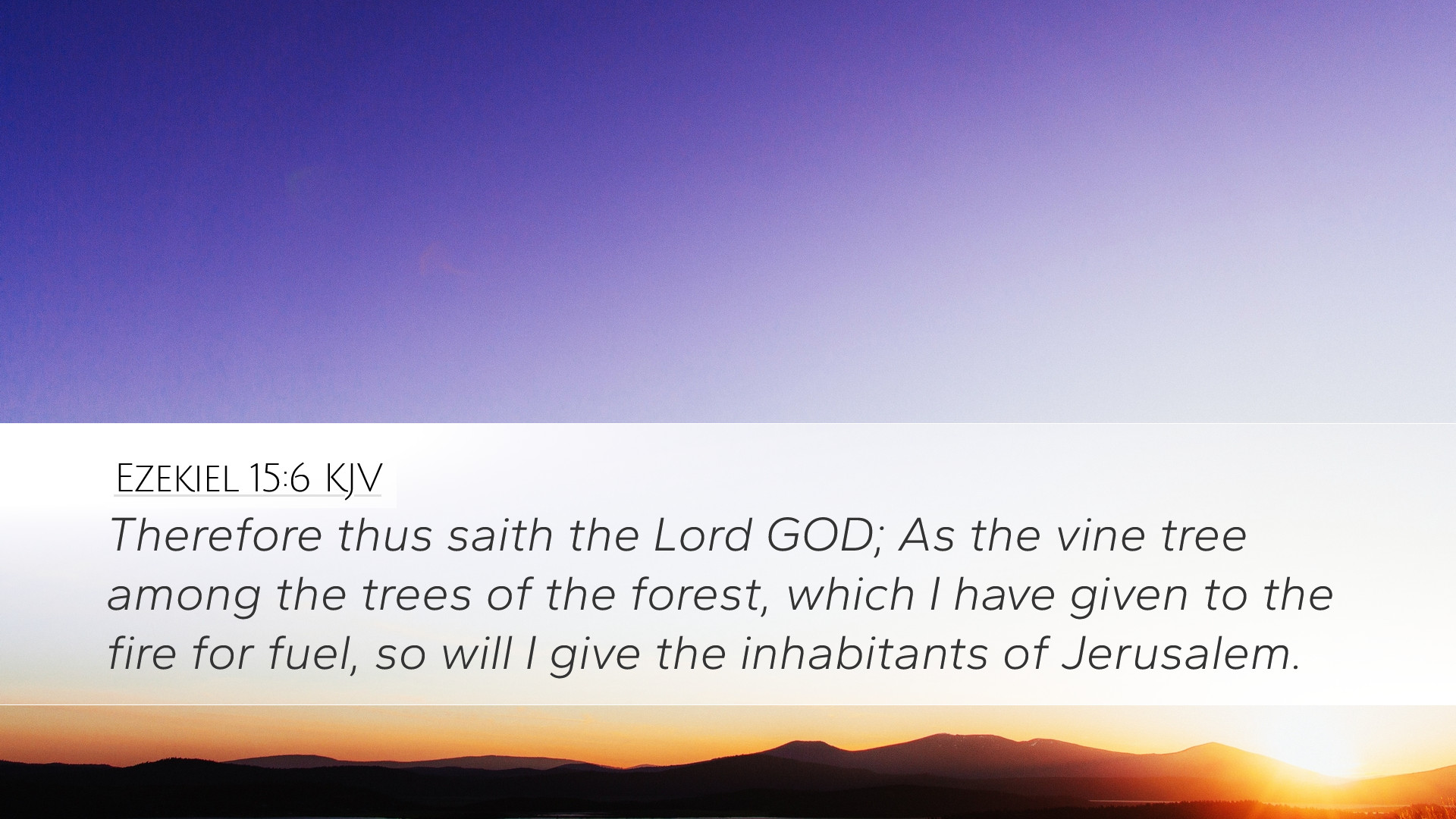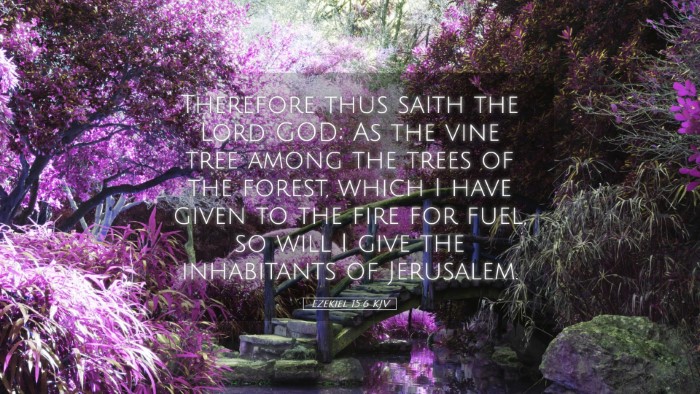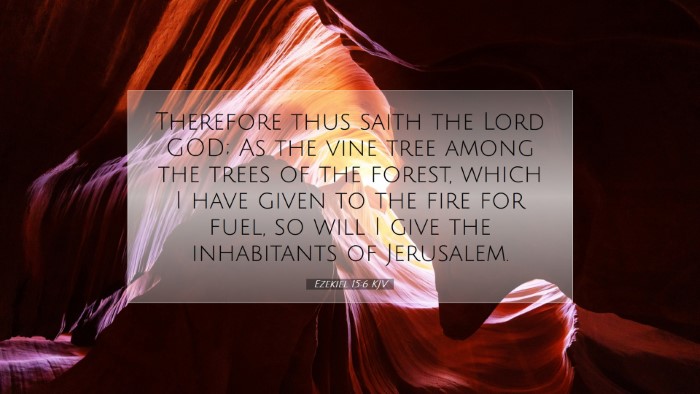Ezekiel 15:6 Commentary
Verse: "Therefore thus saith the Lord God; As the vine tree among the trees of the forest is not to be compared with any tree, so the vine tree among the trees of the forest is not to be compared with any tree, so the vine tree among the trees of the forest is not to be compared with any tree." (Ezekiel 15:6)
Introduction
Ezekiel 15:6 is a poignant verse that draws a vivid metaphor of a vine among trees, emphasizing its insignificance and the consequences of not fulfilling its purpose. This commentary seeks to explore the depth of this metaphor through insights offered by various public domain commentators like Matthew Henry, Albert Barnes, and Adam Clarke, providing valuable perspectives for pastors, theologians, and students of the Bible.
Contextual Overview
The Book of Ezekiel is noted for its prophetic proclamations and symbolic acts. In this verse, the Lord utilizes the image of a vine—a plant recognized for its fruitfulness—to convey a deeper spiritual truth about Israel's unworthiness and exile. Understanding the agricultural significance of the vine and its metaphorical implications is crucial for this analysis.
Insights from Matthew Henry
Matthew Henry offers a comprehensive look at Ezekiel 15, focusing on the nature and purpose of the vine. He notes:
- Insignificance of the Vine: Henry states that the vine is “inherent with weakness” and has no intrinsic value when separated from its purpose of bearing fruit.
- Spiritual Application: He argues that Israel, represented as the vine, had turned away from God and thus lost its position of favor. The vine's comparison to the other trees implies that Israel has become unfit for use, akin to the vine that bears no fruit.
- Consequences of Unfruitfulness: Henry emphasizes the dire consequences of being fruitless—serving as a cautionary tale for believers regarding their spiritual productivity and relationship with God.
Insights from Albert Barnes
Albert Barnes elaborates on the metaphor of the vine and provides additional context:
- Comparison to Other Trees: Barnes deciphered that the vine is special yet has limitations. While it can provide sustenance through its grapes, it is overshadowed by stronger trees that offer more significant benefits, highlighting Israel's failure to live up to God's expectations.
- Theological Implications: Barnes points out that the vine's unfruitfulness represents the spiritual decay of Israel. Just as a vine cannot bear fruit without proper conditions and nurturing, Israel's relationship with God is a conditional one, reliant on obedience and faithfulness.
- Judgment and Hope: While the verses serve as a warning for the impending judgment on Israel, Barnes also suggests a glimmer of hope—implying that restoration is possible should the nation return to its covenant with God.
Insights from Adam Clarke
Adam Clarke provides a nuanced examination of Ezekiel 15:6, emphasizing certain theological and practical dimensions:
- Symbol of Israel: Clarke discusses how the vine is emblematic of Israel's unique standing among the nations, chosen for its special relationship with God. Yet, failure to fulfill this calling has rendered it ineffective.
- Comparison of Value: Similar to other commentaries, Clarke asserts that the vine, despite its potential, cannot be compared to the sturdier trees of the forest, underlining the importance of fulfilling God’s design for the nation.
- Warnings for Believers: Clarke concludes with admonitions for contemporary readers, indicating that just like Israel, believers must abide in Christ (John 15) to bear fruit and avoid the fate of the vine incapable of serving a purpose.
Theological Themes
The verse encapsulates several vital theological themes:
- Divine Judgment: Echoing through the commentaries, there is a consistent theme of divine judgment against unfruitfulness and disobedience.
- Covenant Relationship: The metaphor accentuates the covenant relationship between God and His people, emphasizing the expectations tied to that relationship.
- Hope for Restoration: Amid the warnings, the potential for restoration serves as a key theme—lending hope to those willing to repent and return to God's ways.
Conclusion
Ezekiel 15:6 presents a profound and multi-faceted metaphor that speaks clearly to the realities of spiritual unfruitfulness and the nature of divine judgment. By examining insights from Matthew Henry, Albert Barnes, and Adam Clarke, it is evident that the verse serves as both a warning and an encouragement for God’s people throughout history. The rich symbolism encourages reflection not only on Israel’s historical realities but also on the personal spiritual state of believers today. It invites pastors, theologians, and students alike to consider their roles in the vineyard of the Lord, ensuring that they are fruitful and fulfilling their divine purpose.


